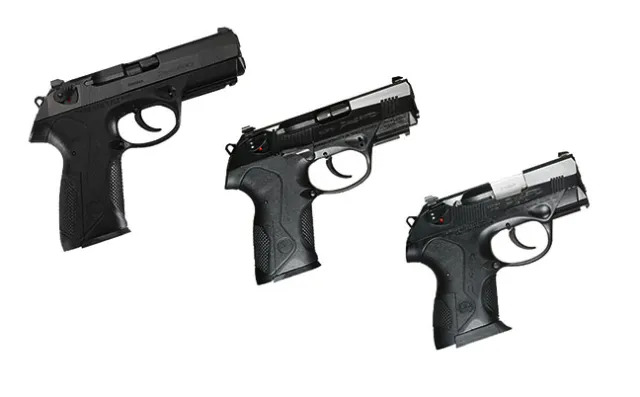|
For individuals venturing into the realm of firearms, selecting the right handgun size is a pivotal decision that can impact their shooting experience, safety, and proficiency. The array of choices available can be overwhelming for newcomers. To ease this transition, it's essential to consider various factors when determining the best handgun size for a beginner shooter. This article will delve into those considerations, helping newcomers make informed decisions that prioritize safety, comfort, and effective skill development.
|
 |
|
|
|
Understanding Handgun Sizes
|
|
Before delving into the specifics, it's crucial to comprehend the basic distinctions among handgun sizes. Handguns generally fall into three size categories:
-
Full-Size: These handguns are larger, boasting extended barrels and grips. They tend to have a greater capacity for ammunition, are more stable during shooting, and can be easier to control. However, their size can also make them less concealable and heavier to carry.
-
Compact: Compact handguns are smaller than full-size models, with reduced dimensions for easier concealment. They typically maintain a balance between firepower and portability, making them suitable for both self-defense and shooting practice.
-
Subcompact: Subcompact handguns are the smallest of the bunch, designed primarily for concealed carry. They sacrifice ammunition capacity and often have snappier recoil due to their diminutive size, which can challenge beginners' shooting control.
|
|
|
Considerations for Choosing the Right Handgun Size
|
|
When selecting the best handgun size as a beginner shooter, several vital considerations should guide your decision:
-
Purpose and Intended Use:
- Self-Defense: If the primary purpose is self-defense, a compact or subcompact handgun might be preferred due to their ease of concealment. Their smaller size allows for discrete carry, vital in various situations.
- Range Practice: For beginners focused on learning shooting fundamentals and improving accuracy, a full-size handgun might be more appropriate. Their larger frames offer increased stability and better recoil management, contributing to a smoother learning curve.
-
Ergonomics and Comfort:
- Hand Size: An individual's hand size plays a crucial role in determining the handgun size that feels comfortable and controllable. A gun that fits well in the shooter's hand minimizes the risk of poor grip and enhances accuracy.
- Recoil Management: Larger handguns typically offer better recoil control due to their increased weight. However, beginners with less upper body strength might find compact models more manageable when it comes to recoil.
-
Ammunition Capacity:
- Full-Size: Full-size handguns generally offer higher ammunition capacity, which can be advantageous for self-defense scenarios where multiple shots may be required. This can compensate for less precise shooting under stress.
- Compact and Subcompact: These sizes may have reduced ammunition capacity due to their smaller frames. While this might not be ideal for extended firefights, they still provide adequate firepower for most self-defense situations.
-
Training and Skill Development:
- Learning Curve: Full-size handguns are often recommended for beginners to facilitate skill development. Their larger grips are more forgiving in terms of grip technique and recoil control, allowing newcomers to focus on proper aiming and trigger control.
- Concealed Carry Training: If concealed carry is the ultimate goal, it's essential to practice with the handgun size that will be carried daily. Subcompact or compact models are the obvious choices here, as they replicate real-world scenarios more accurately.
-
Budget and Affordability:
- Cost Considerations: Full-size handguns tend to be more affordable than compact or subcompact models due to their simpler construction and reduced demand for concealment features. This can be advantageous for beginners who want to invest in training without breaking the bank.
|
|
|
|
Making the Decision
|
|
Selecting the best handgun size for beginner shooters is a multi-faceted decision that depends on individual preferences, intended use, and physical attributes. Whether one opts for a full-size, compact, or subcompact handgun, it's crucial to prioritize safety, training, and education. Beginners should approach their firearm journey with the intention of developing a strong foundation in firearm handling, marksmanship, and responsible gun ownership.
In the end, the ideal handgun size for a beginner shooter is the one that promotes confidence, comfort, and accuracy. By considering the purpose of the firearm, ergonomics, ammunition capacity, training objectives, and budget constraints, newcomers can make informed decisions that empower them to embark on a safe and rewarding journey into the world of firearms.
|
|
|
|
|